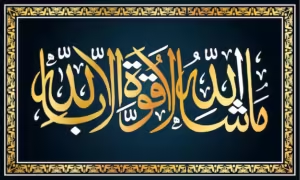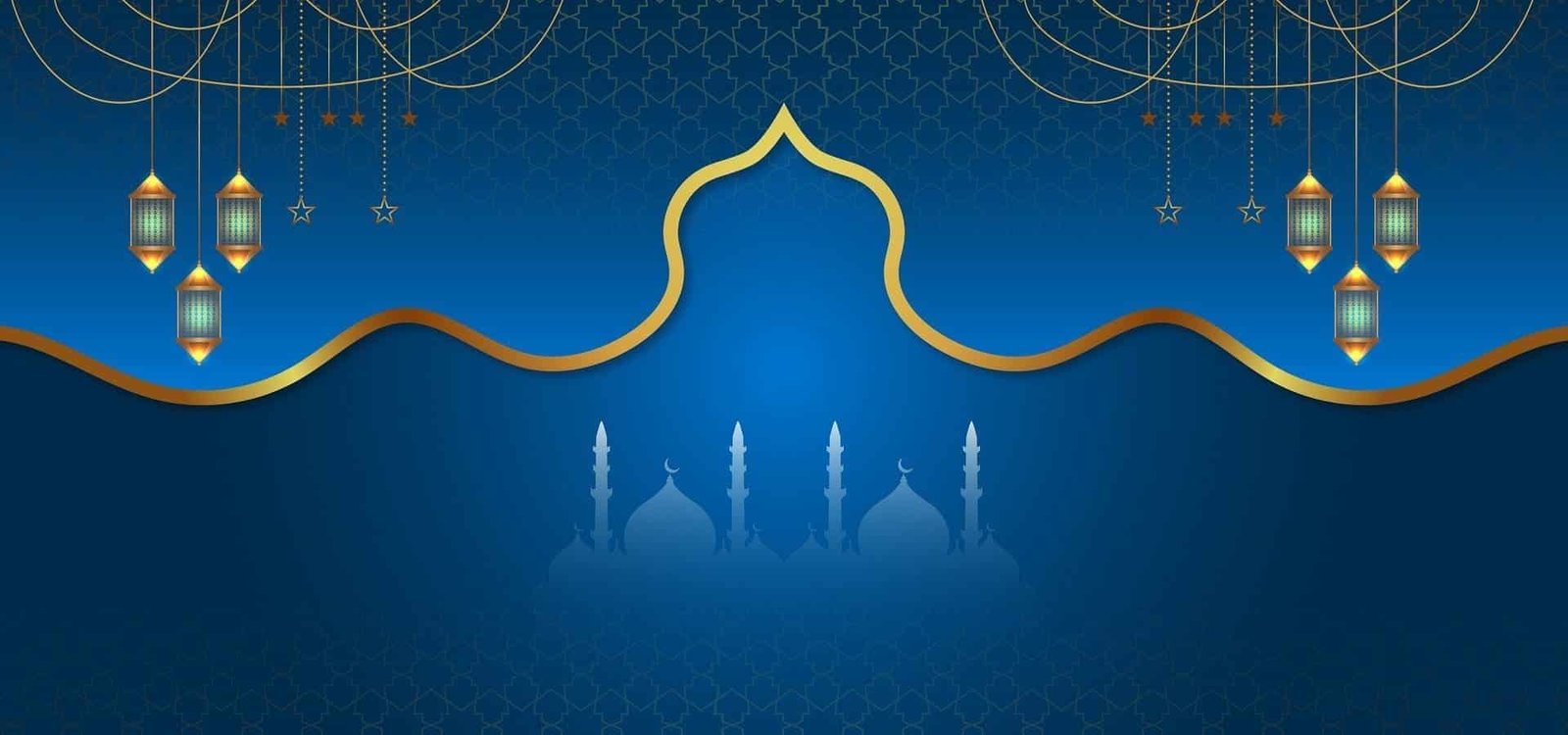Masha Allah (ما شاء الله): Acknowledging Allah’s Will
Masha Allah means ‘what Allah has wanted.’ It is the kind of thing that is said when the beauty, achievement, or elegance of something is being observed, such as success, the rather unforced style of nature, or the other good character in any given person. This phrase indicates that even the most minor favours and bounties result from Allah’s decision-making.
Example in Daily Life
Muslims use Masha Allah not to envy others, so they will not envy others. For instance, when blessing someone’s glory, we say ‘Masha Allah,’ meaning that only Allah can cause anything good to happen.
Quranic Reference
In Surah Al-Kahf (18:39), Allah provides an example:“وَلَوْلَا إِذْ دَخَلْتَ جَنَّتَكَ قُلْتَ مَا شَاءَ اللَّهُ لَا قُوَّةَ إِلَّا بِاللَّهِ”
“And why did you not, as you entered your garden, say, ‘Masha Allah, there is no power except in Allah’…”
This verse reminds believers that all achievements and blessings should be attributed to Allah’s will. Allah’sallah (سبحان الله): Glory Be to Allah
Subhanallah means “Glory be to “Allah” and is used “to express awe and wonder, particularly when contemplating Allah’s creation. “Allah reflects a pure admiration for Allah’s perfect and free of any imperfection.
The Practice of Reflection
Subhanallah is commonly said when observing nature, such as a breathtaking sunset, the complexity of the stars, or even moments of personal insight. It helps Muslims cultivate a habit of reflecting on the beauty of creation and Tradition (Hadith)
The Prophet Muhammad ﷺ advised his followers to say Subhanallah as a means of remembering Allah. In one Hadith, he said:
“كَلِمَتَانِ حَبِيبَتَانِ إِلَى الرَّحْمَنِ خَفِيفَتَانِ عَلَى اللِّسَانِ ثَقِيلَتَانِ فِي الْمِيزَانِ سُبْحَانَ اللَّهِ وَبِحَمْدِهِ سُبْحَانَ اللَّهِ الْعَظِيمِ”
“Two phrases that are beloved to the Most Merciful, light on the tongue but heavy on the scales: ‘Subhanallah wa bihamdihi, Subhanallah Al-Azeem.’” (Sahih Bukhari)
Allahu Akbar (الله أكبر): Allah is the Greatest
Subhanallah is a Muslim phrase used whenever one is overwhelmed by something, especially while thinking of Allah’s worksAllah’sare ALLAH’sare-free from all flaws and simply means appreciating Allah’s perfect Allah’sithout any imperfection.
The Practice of Reflection
Subhanallah is used when in the presence of such things as a beautiful sunset, the intelligence of stars, or one has an idea. It assists Muslims in developing a routine whereby they have a chance to ponder over the creation and acknowledge Allah’s work. Allah Tradition (Hadith)
It is narrated from the Prophet Muhammad ﷺ that he urged them to say Subhanallah so that they might remember Allah. In one Hadith, he said:
Barakallah (بارك الله): Blessing from Allah
Barakallah is an Arabic phrase translated into English as “Blessings of Allah.” It is used every time one wishes another person or thing a blessing. It usually involves spirit, happiness, laughter, and celebrations such as weddings, the birth of a new baby, achievements, etc.
Expressing Goodwill
Barakallah also represents an actual act of blessing. For instance, when saying Barakallah at a wedding or when a friend achieves a specific accomplishment, people shower them with blessings and express care.
Prophetic Usage
In many times, the Prophet ﷺ would use different types of Barakallah to bless other people. For instance, I remember he would always say, ‘Barakallah wa alaikum’ Allah grant you good health, prosperity or joy.’
Tabarakall’h (تبارك الله): Blessed is Allah
The term for Tabarakallah is “Blessed is Allah” and is usually employed in combination with Masha Allah. It merely depicts the acknowledgment that Allah is perfect in virtues, bountiful in his blessings, and merciful. Stating Tabarakallah puts Muslims in a position to be thankful because Allah is generous in his provision to his believers.
A Complete Expression
Appending Tabarakallah to Masha Allah (e.g., Masha Allah Tabarakallah) increases the thankfulness and appreciation of Allah’s will and blessings.
Guidance from Hadith
The Prophet ﷺ encouraged such expressions to prompt the Allah. To use a Tabarakallah, Muslims accept that every favour is from Allah and glorify His greatness.
Alhamdulillah (الحمد لله): Praise Be to Allah
Alhamdulilla, translated as praise to Allah, is said to be used in situations of success or hardship. Reciting the words Alhamdulillah keeps in the minds of Muslims; they must always be thankful to Allah.
In Daily Practice
Muslims use alhamdulillah in every event when they feel happy or just receive what they consider a blessing. Still, in times of difficulties, it is used to signify patience. Alhamdulillah is a word that Muslims use to accept Allah’s deeds. Allah, thank Him for his presence in all facets of life.
Quranic Reference
It is used in the Quran as a statement in which one firmly declares their faith. In Surah Al-Fatihah, the opening chapter of the Quran, it says:
“الْحَمْدُ لِلَّهِ رَبِّ الْعَالَمِينَ”
“All praise is due to Allah, the Lord of the worlds.” (1:2)
This verse sets a tone of gratitude and reverence, serving as a foundation for Muslims’ daily prayers.
The Collective Impact of These Phrases
The following Prophet Muḥammad (PBUH) phrases, Masha Allah, Subhanallah, Allahu Akbar, Barakallah, Tabarakallah, and Alhamdulillah, are essential elements in the Muslim worldview. They all serve as various opportunities to address Allah and consistently inspire the believer with something new about their relationship with the divine. They promote living with awareness, purpose, humility, and gratitude.
Speaking these phrases daily keeps one in touch with one’s religion, makes one aware of Allah’s existence, and keeps the heart obedient, grateful, and submissive to His will. In a world that cannot emphasize ego, these phrases revive Glory’s Allah’sy, Alla he sings, and mercy, which causes the believer to find true calmness, humbleness, and direction.




